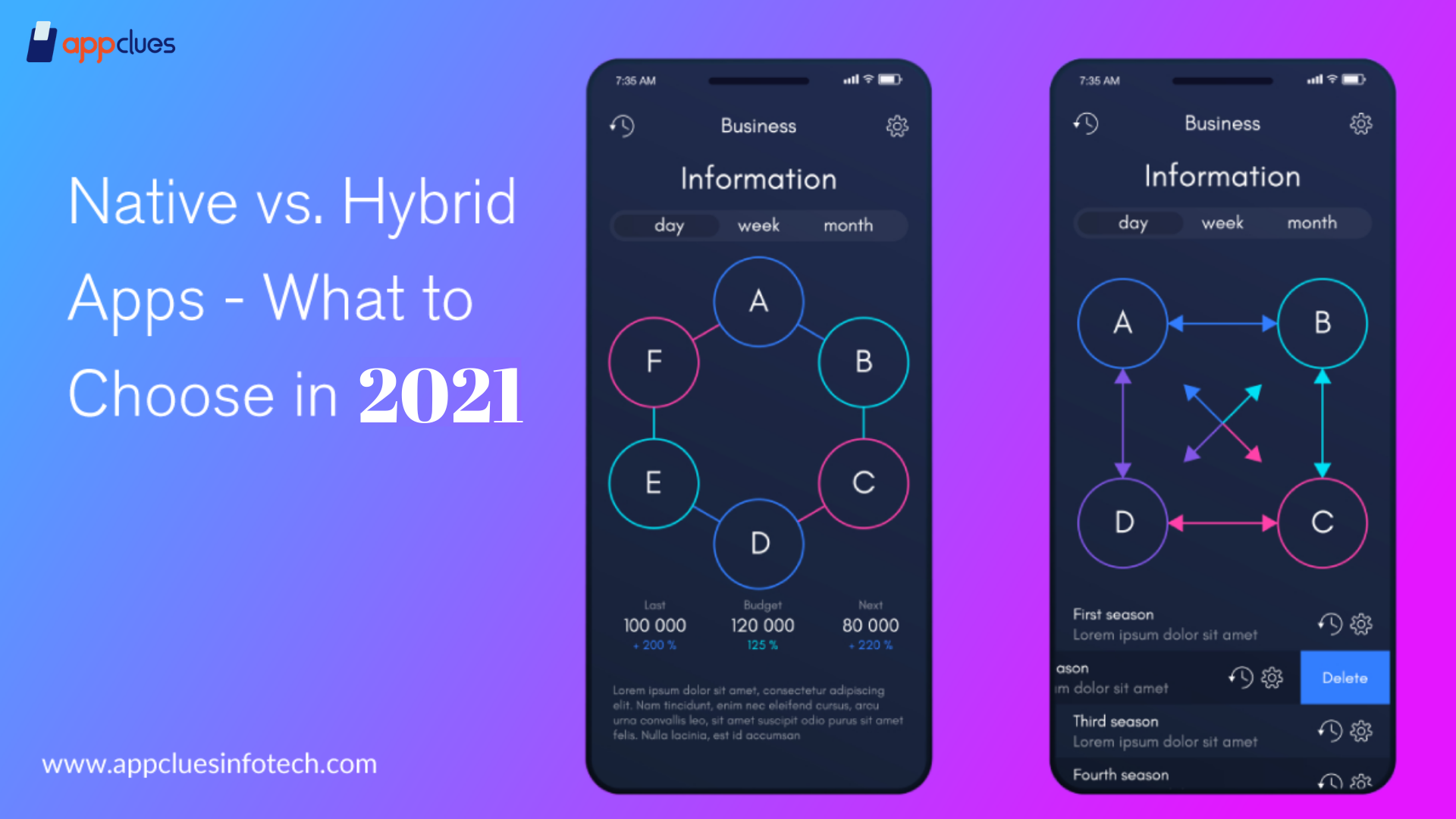According to researchers, the ratio of mobile phone users in the year 2019 is estimated to reach 4.68 billion, which is a mobile app has become a new phenomenon in this fast-moving world. Undoubtedly, this platform has always been promising and never been out of date. However, mobile app development can stress you out as a business owner.
Customers today are increasingly shifting towards the mobile app, for which, even businesses are striving hard to penetrate in the market successfully. The real challenge begins when it comes to choosing the right mobile app development as there are many platforms that offer mobile app development framework, but the top players are React native app development and Hybrid.
React native app have been in the market for a quite long time now, whereas Hybrid apps entered the market a few years ago, but this platform is well-recognized today similar to React Native.
Many entrepreneurs and mobile app developers are still in a dilemma, which one is better. Yet, this has been always in debate, since the inception of hybrid apps. It is tough to answer this question as both are good and have their own pros and cons. You can also see this graph representing the new programming language of hybrid apps, and React native language that holds the maximum share:
Many websites give you a general opinion on these two, but in this article, we’ve outlined neck-to-neck comparison of React Native and Hybrid app that will help you to decide which is better for your business:
Difference between React Native and Hybrid App Development
Well, the difference between these two popular platforms can be understood by its name itself. React native are the type of apps that are utilized for a single platform because the term “native” means single, which is why they have detailed features to provide exceptional user experience to customers. Whereas hybrid apps are in a true sense very hybrid as they’re not meant for single platforms, rather they work on different platforms such as Android, iOS, etc.
- Cost Difference-
If we talk about cost, native apps are more expensive as compared to hybrid because react native provide advanced UI and UX designs. More so, native apps use the hardware components of the mobile device that makes things difficult on the developer’s part to integrate code on different platforms separately. But with hybrid, this is not the scenario, because it is not a constraint to one platform that means the app will be uncovered on different operating systems that utilize different hardware components. This is why hybrid apps are cheaper as here the developers have to prepare a single code for all the platforms as it is highly compatible.
- Time to Market Difference-
The calculation of cost in mobile app development primarily relies on working hours spend to complete the project. This is one of the crucial factors that businesses should take into consideration. Suppose, if clients require only MVP (minimum viable product), then you easily provide them with your business idea. But if your client requires instant time to market, then hybrid app development is a reliable solution. It is already equipped with pre-set libraries and development frameworks such as PhoneGap, Xamarin, and a lot more that boosts the overall speed of the development process.
It actually depends on your client, whether they want a detailed app with best features and allowing you to take your time, then React native is all that you need. In case, if the client wants fast time to market, then the hybrid is the right choice as you don’t have to write codes again and it will provide fewer features as compared to react native.
- Feature Differences-
This is where React native is unbeatable. You’ll find better features in React native as compared to hybrid as it can easily be integrated with innumerable hardware components of the smartphone such as GPS, sensors, etc. Moreover, native apps have always been recognized for easy modification and addition of new features. Whereas, hybrid apps use basic mobile configuration due to which it is considered for clients who require advanced apps. For instance, you find split screening and multitasking feature in Android, but Apple doesn’t offer such features, which clearly shows the difference between react native and hybrid mobile apps.
- Easy to use-
At some point, with advanced features, you’ll find native apps tough to understand and a bit cluttered, which hampers the user experience. Native apps are created by keeping all the details in the limelight that some users don’t like as find it quite challenging. However, the hybrid is simple and focused on the core purpose of the app, which reduces the complexity of the app development as well. Therefore, users find hybrid apps a bit straightforward and easy-to-use as compared to react native app development. Big brands like Facebook and Instagram choose a hybrid platform to run these apps seamlessly.
In which situations you should develop a Hybrid or Native App?
Hybrid Apps:
- Budget is limited
- Client demands for MVP
- Quick turnaround time
- No exclusive focus on customer features
- Accelerates the development cycle
React Native Apps
- Demand for a bug-free site
- Better user experience is a must
- Better privacy and security is the priority
- Internet connectivity shouldn’t be a problem
Bottom line
This was the wide difference between these two popular app development platforms. I hope the above-mentioned factors and comparison will help you make a better decision to React native app development and hybrid app development. We’ve strived so hard to provide you with precise, accurate and reliable information that will clear your confusions.
Looking To Partner With Top React Native Development Company?
If you’re looking for a reliable development company who can provide you with react native app development services, then Get in touch now. With extensive years of experience, we assure our clients with data security, quick turnaround time, and 98.99% accuracy with regards to project management that too at an affordable price.





